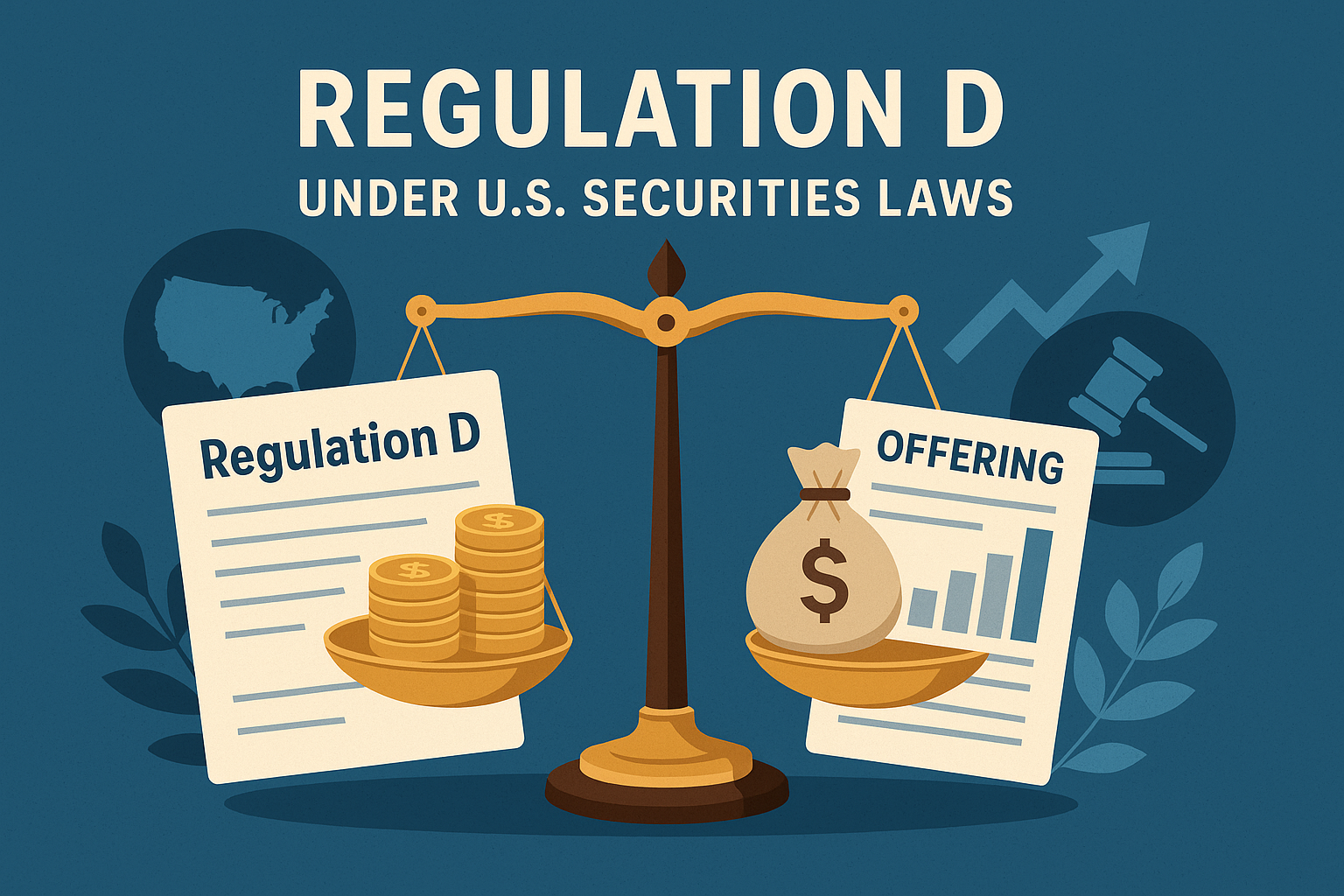
When businesses raise capital, they often encounter the strict registration requirements of the Securities Act of 1933. Full registration with the SEC can be expensive, time-consuming, and impractical for many smaller companies. Fortunately, Regulation D (Reg D) provides an important set of exemptions that allow issuers to offer and sell securities without undergoing the full SEC registration process.
What Is Regulation D?
Regulation D, adopted by the Securities and Exchange Commission, creates exemptions from the registration requirements of the 1933 Act for certain private offerings. It is designed to make capital formation more accessible to startups, small businesses, and private companies—while still protecting investors.
Reg D does not eliminate the need to comply with federal anti-fraud rules or applicable state “blue sky” laws, but it does create a streamlined pathway for issuing securities in private placements.
The Key Rules Under Regulation D
Regulation D is divided into several rules, each with different requirements:
- Rule 504 – Allows offerings of up to $10 million in a 12-month period. These securities are generally subject to state regulation, and advertising is limited.
- Rule 506(b) – The most widely used exemption. It permits an unlimited dollar amount to be raised from an unlimited number of accredited investors and up to 35 non-accredited (but sophisticated) investors. General solicitation and advertising are not allowed.
- Rule 506(c) – Similar to 506(b), but issuers may use general solicitation and advertising provided all purchasers are accredited investors and the issuer takes “reasonable steps” to verify that status.
Accredited Investors
A central concept in Reg D offerings is the accredited investor. This includes individuals with a net worth over $1 million (excluding their primary residence), or an income over $200,000 ($300,000 with a spouse) for the past two years, among other qualifications. The assumption is that accredited investors can bear the economic risk of unregistered offerings.
Advantages of Regulation D
- Reduced Costs: Avoids the time and expense of full SEC registration.
- Flexibility: Offers multiple rules that can be tailored to the issuer’s needs.
- Unlimited Capital (under Rule 506): Companies can raise substantial funds without registration.
- Confidentiality: Compared to public offerings, Reg D placements involve less disclosure of sensitive company information.
Ongoing Compliance and Risks
Even under Reg D, issuers must file a Form D with the SEC within 15 days of the first sale. They must also comply with anti-fraud provisions and may still face liability for misstatements or omissions. Importantly, many Reg D offerings must also navigate state securities regulators, which may impose notice filings and fees.
Conclusion
Regulation D provides businesses with powerful tools to raise capital while balancing investor protection and regulatory efficiency. Whether a small startup seeking seed money or a mature company raising growth capital, understanding how to properly structure a Reg D offering—and avoiding pitfalls—can be crucial.
Legal counsel plays a key role in ensuring compliance, tailoring the offering structure, and protecting both issuers and investors from regulatory risk.
At David C. Barsalou, Attorney at Law, PLLC, we help clients navigate business, family, tax, estate planning, and real estate matters ranging from document drafting to litigation with clarity and confidence. If you’d like guidance on your situation, schedule a consultation today. Call us at (713) 397-4678, email barsalou.law@gmail.com, or reach us through our Contact Page. We’re here to help you take the next step.